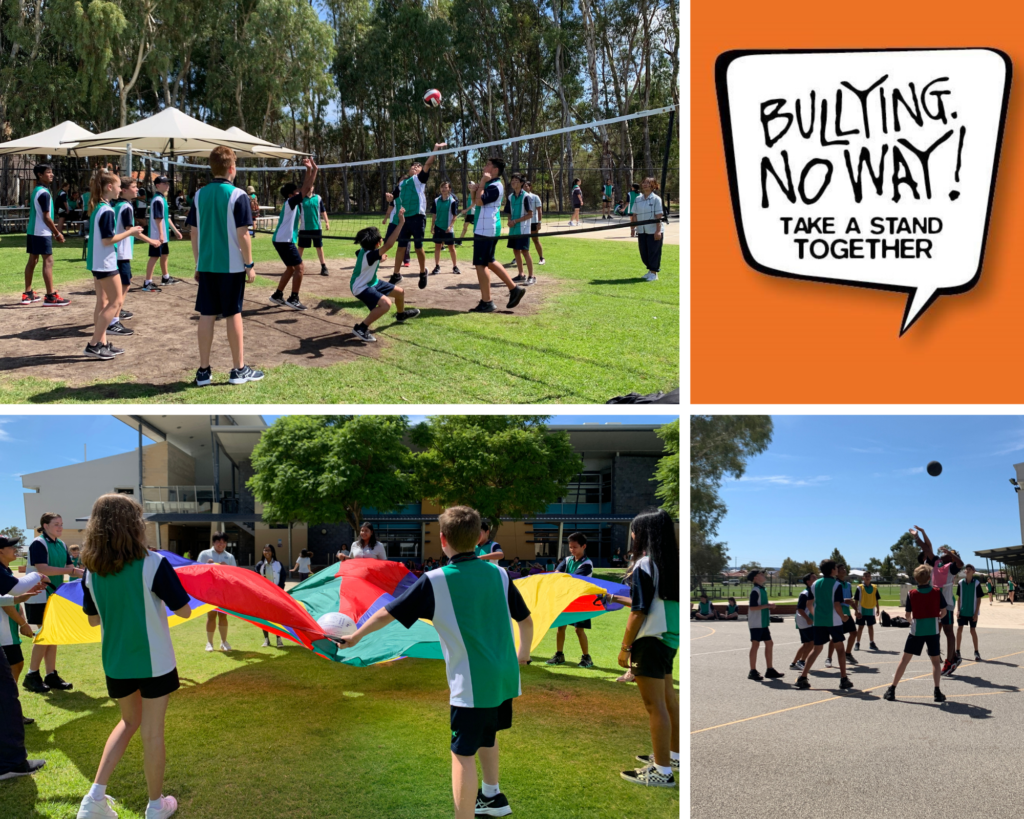
At our school we aim to create a safe and supportive school community for everyone. Friday March 19th is the National Day of Action against Bullying and Violence, and is a day for schools, students and the community to say Bullying. No Way!
The theme this year is to ‘take action together.’ This theme aims to elevate student voice, empowering our young Australians to join the conversation.
CVC students came together during break time today to partake in volleyball, basketball and colour parachute activities as part of the days celebrations.
Sometimes, it can be difficult for parents or carers to know what to do when their child talks to them about bullying. You are an important part of our work to prevent bullying and to respond effectively if it happens. Stopping bullying involves everyone.
If your child talks to you about bullying:
Listen calmly and get the full story. Your calm response is important to allow your child to tell you all about the situation. After they’ve told you their story, ask questions to get more details if you need to: who, what, where, when. Although you may feel some strong emotions about your child’s experience, try to keep calm to avoid more distress to your child.
- Reassure your child they are not to blame. Many children blame themselves and this may make them feel even worse. You could say things like, ‘That sounds really hard to deal with. No one should have to put up with that.’ or ‘I’m so glad you told me. You should be able to feel safe at school; that’s not fair at all’.
- Ask your child what they want to do and what they want you to do. A critical part of your response is to avoid jumping in to solve the problem. While it is natural to want to protect your child, helping them to find their own solution is a better option. It helps them feel they have some power in the situation.
- Visit www.bullyingnoway.gov.au to find some strategies. The website has tips and ideas for different bullying situations. One idea is to practise strategies at home to help your child feel more confident.
- Contact the school. Your child may be reluctant for you to do this, so discuss the idea and reassure them that the school would want to know and is able to help. Make an appointment to meet with your child’s year coordinator. Contact the school immediately if you have a concern about your child’s safety.
- Check in regularly with your child. Keep the conversation going. It can take time to resolve issues, so check in regularly with your child about their experiences and their feelings. Your ongoing support is important.
Thanks for your support to make our school a great school for everyone.
